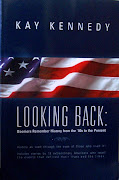History is a funny thing. One day you’re young and have no concept of the meaning of “history.” Then one day you wake up and realize you are history (and I mean that in the kindest way).
While you’ve been living your life, important events have been taking place that will someday be written about in the past tense for future generations to read. And suddenly one day you realize that day is now!
The other day I heard an “old” song that once had so much meaning to the baby boomer generation, titled (I think) “Put a Little Love in Your Heart.” The song was about how the world would be a better place if we all helped look after our fellow man with love in our hearts.
Wow, what a concept! What has happened to that ideal? Where did all the love go? Are those who believed in that concept now dead and gone, or have their hearts been hardened by the daily routine of their lives, or the arrogance of all the elected officials who failed to consider love of their fellow man as a viable alternative to war?
As I wrote in Looking Back, the late ‘40s and early ‘50s were the age of innocence, but I don’t recall that we were thinking much about helping our fellow men. Life was good, and the times were relatively safe and prosperous. I doubt that it entered the minds of those of us born in the ‘40s until our attention was drawn to it later that there were people who were downtrodden, who lacked civil rights or enough money to feed themselves or their kids. We were doing okay, so why shouldn’t the rest of America do just as well? Our attitudes were based more on lack of knowledge (naiveté) than arrogance.
Sometime in the mid-to-late ‘50s, a few began to drop out of society. They became “beatniks” who hung out in coffee houses in places like San Francisco and the Village in New York City, and who wrote and sang songs of angst. Did they have a cause—a higher purpose for their actions? Or were they simply a little too preoccupied with their own belly button? I don’t know. Growing up in Little Rock, Arkansas, I knew little about these early rebels.
I didn’t realize that as a typical teenager who embraced rock ‘n’ roll (the devil’s) music, I like many others of my peers were actually beginning to display subtle acts of rebellion against our parent’s generation and their safe, complacent lifestyles.
That rock ‘n’ roll generation laid the groundwork for the hippie generation—those youngsters who would come of age throughout the ‘60s and on into the early ‘70s and realize that the world their parents had brought them up in wasn’t as perfect as it seemed.
The ‘60s were many things to Americans. To the young, they were exciting times when they could become free spirits and experiment with lifestyle choices that would have turned their parents’ hair gray. It was a time of inclusion and “love.” How charming it was to watch a barefoot hippie dressed in ragged and dirty clothes on the sidewalks of San Francisco walk up to a businessman dressed in a suit and hand him a flower and utter the word, “Peace.” The innocence of those young people as they attempted to change society was an eye-opening experience for those of us who witnessed it, and frightening to those who worried about how these “dead-beat drop-outs” would someday run our country.
Parents watched obedient youngsters change from respectful to rebellious—determined to turn society on its head. The youngsters were fed up with the injustice that pervaded society. At the same time, they were seduced by the sexual freedom offered by the birth control pill, and by street drugs that could numb their minds while unleashing emotions that were previously unknown to them.
Not everything about those years was wonderful, and I often wonder what happened to the young people so full of hope who shouted “make love, not war.” Did love for fellow man turn to fear while witnessing a President, a civil rights leader, and a Presidential candidate get assassinated during the decade of the ‘60s? Did love turn to contempt as they watched government officials hell-bent on remaking the rest of the world in our own image? Or did love simply die because it was hard to maintain the level of trust for mankind that was required for that kind of universal love?
The book Looking Back doesn’t attempt to answer any of those questions, but it does look at the ‘60s and remembers why the decade will be remembered fondly by some, and disgustedly by others. It was and is history, and is chronicled by those who lived through it, who had their own individual, personal part in, and reactions to the times.
This book is history as it should be remembered. It is not written by history textbook writers who think it is only important that basic, dry facts be included. Instead it is written by people who lived it, who had strong emotions about it, and who managed to survive the decade of the ‘60s, and those following it.
Every American should have a vested interest in the history of our extraordinary country, including recent events from the ‘40s to today. Hopefully, this personal approach to telling about history will prompt more Americans to read about it and enjoy the amazing journey back into time.
Wednesday, September 26, 2007
Subscribe to:
Post Comments (Atom)


No comments:
Post a Comment